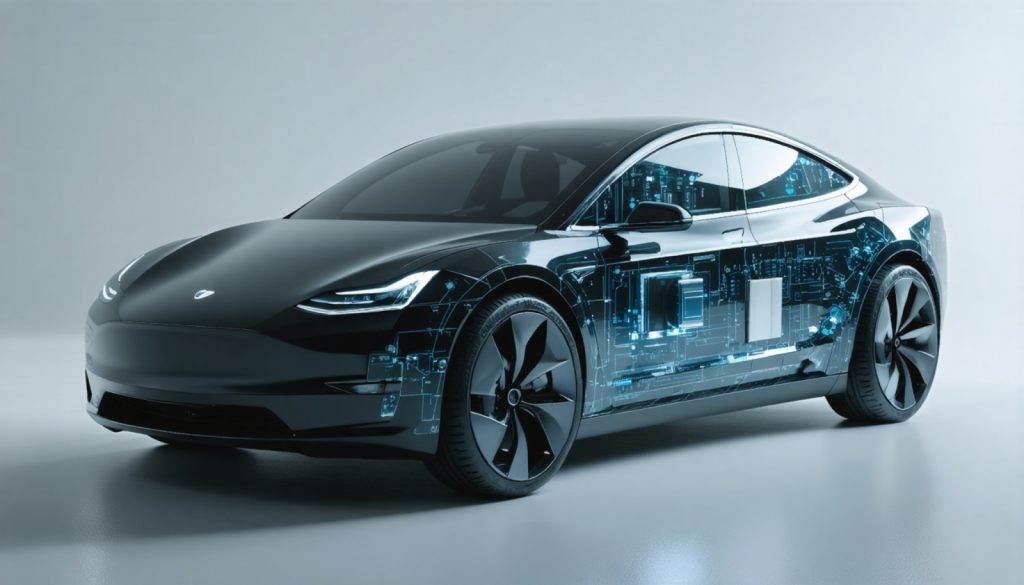- Altilium has successfully created EV battery cells using recycled materials at the UK Battery Industrialisation Centre, leading a quiet revolution in sustainable technology.
- The company’s EcoCathode technology recovers over 95% of crucial metals, like lithium, from old EV batteries, significantly reducing dependence on new raw materials.
- Recycled battery cells perform comparably to those made from virgin metals, with less than 1% variance in performance metrics.
- Altilium’s innovation suggests a promising future for battery circularity, cutting reliance on imports and fostering a sustainable industrial market.
- This advancement positions the UK as a potential leader in the burgeoning market for recycled batteries, combining environmental and industrial benefits.
- Overall, the work of Altilium highlights the potential of recycling technologies to address climate change and resource scarcity.
Amidst Coventry’s industrial hum, a quiet revolution is unfolding that could redefine the future of electric vehicles and the sustainability of our planet. Altilium, a pioneering clean technology group from the UK, has made a significant leap forward by successfully manufacturing electric vehicle (EV) battery cells using recycled materials at the UK Battery Industrialisation Centre (UKBIC).
Picture this: the buzz of innovation as nimble machines delicately piece together cells, each component a testament to human ingenuity and ecological responsibility. These battery cells are crafted not from virgin metals, painstakingly mined from the earth, but from recycled elements—given a second life through Altilium’s cutting-edge EcoCathode technology. This process recovers over 95% of crucial metals, such as lithium, from defunct EV batteries, effectively bridging the gap between environmental necessity and technological advancement.
The recent trials have provided a dazzling insight: the recycled cells perform on par with those made from freshly extracted materials. Electrochemical testing confirms that the variance in performance metrics is less than 1% when compared to traditional counterparts. This revelation is not only a testament to the robustness of recycled materials but also a harbinger of a more sustainable battery manufacturing landscape.
In a sleek, state-of-the-art facility in Coventry, Altilium has proven what was once deemed implausible. The pouch cells, embodying the recycled EcoCathode NMC 811-2036 CAM, have showcased impressive equivalency in manufacturability alongside their standard counterparts. The process ran as smoothly as a well-oiled machine, marking a decisive moment in the realm of battery circularity.
The implications are profound. Imagine the reduction in dependence on imported raw materials and the potential rebirth of an entire market geared towards recycled batteries. This is not just a technological victory; it is a vision for a future where sustainability and industrial prowess go hand in hand.
Richard LeCain, UKBIC’s Chief Technology Officer, exudes optimism about the trajectory this innovation represents. He foresees a burgeoning market for recycled batteries, with the UK positioned prominently at the forefront of this green industrial evolution.
As the world grapples with climate change and resource scarcity, discoveries like Altilium’s underscore a vital truth: innovation in recycling technologies can pave the path to a sustainable future. With each cell manufactured from recycled components, we edge closer to a world where the circular economy becomes the norm rather than an exception.
The stakes are high, but the potential rewards are monumental. Altilium’s groundbreaking work invites industries around the globe to imagine and embrace a world where the lifecycle of technology is no longer linear but circular, ensuring a thriving planet for generations to come.
Unlocking the Potential of Recycled EV Batteries: The Future of Sustainable Manufacturing
The emergence of Altilium’s advanced recycling technology at the UK Battery Industrialisation Centre (UKBIC) is setting a precedent for the sustainable future of electric vehicle (EV) manufacturing. As industries increasingly focus on environmental sustainability, the ability to produce EV batteries from recycled materials presents significant advantages. Here, we delve deeper into the aspects of this breakthrough and explore its far-reaching implications, practical applications, and future possibilities.
The Technology Behind Recycling EV Batteries
Altilium’s EcoCathode technology represents a significant leap in battery recycling efficiency. It utilizes advanced processes to recover over 95% of essential metals, such as lithium, nickel, and cobalt, from defunct EV batteries. This not only reduces the need for virgin metal extraction—which is environmentally invasive and resource-intensive—but also supports the broader adoption of recycling as a sustainable practice. According to a study published by the journal Nature Sustainability, innovations in recycling technologies can dramatically reduce the carbon footprint associated with battery production.
How-To Steps for Implementing Battery Recycling
1. Collection and Sorting: Implement a systematic recycling program for collecting used EV batteries from consumers and recycling centers.
2. Disassembly: Carefully disassemble batteries to separate cells from other components.
3. Recovery Process: Use advanced chemical processes, such as those in EcoCathode technology, to extract metals with high efficiency.
4. Refinement and Reuse: Refine extracted metals for use in new battery production, maintaining quality standards.
5. Manufacturing: Incorporate recycled materials into new battery cells, ensuring equivalent performance to traditional cells.
Real-World Use Cases
– Automotive Industry: Carmakers can leverage recycled batteries to reduce manufacturing costs and carbon emissions, aligning with sustainability goals.
– Energy Storage: Recycled battery cells are suitable for grid storage applications, providing a stable and low-cost solution for renewable energy storage.
– Consumer Electronics: Manufacturers of consumer electronics can reduce environmental impact by sourcing batteries made with recycled materials.
Market Forecasts & Industry Trends
The demand for sustainable battery technologies is expected to grow exponentially. According to the International Energy Agency (IEA), battery demand for EVs alone could multiply tenfold by 2030. The shift towards circular economy models in battery production will likely play a crucial role in meeting this demand sustainably.
Pros & Cons Overview
Pros:
– Environmental Impact: Significant reduction in mining activities and associated environmental damage.
– Resource Efficiency: Efficient use of existing materials supports a sustainable circular economy.
– Cost Reduction: Lower production costs due to the use of recycled materials.
Cons:
– Initial Implementation Costs: High initial investment in recycling technology and infrastructure.
– Technological Barriers: Continuous advancements are necessary to increase metal recovery rates and reduce impurities.
Insights & Predictions
As more countries set ambitious climate targets and push for decarbonization, recycled battery technologies could become a staple in sustainable manufacturing. Innovations like Altilium’s are expected to gain global traction, with governments and industries alike investing in the requisite infrastructure.
Actionable Recommendations
– Invest in Recycling Infrastructure: Stakeholders in the automotive and electronics sectors should prioritize investment in recycling technology and infrastructure.
– Policy Advocacy: Advocate for policies that support recycling initiatives and reduce regulatory barriers to recycling.
– Consumer Awareness: Educate consumers on the benefits of recycling and the role of recycled products in environmental sustainability.
Conclusion
Altilium’s pioneering work in recycled EV batteries signals a transition towards a more sustainable manufacturing paradigm. This innovation not only represents a technological triumph but also highlights the pathway to a circular economy. Industries worldwide are encouraged to embrace this model, ensuring a future where technology supports both progress and preservation of our planet. For more insights into sustainable technologies, visit Altilium.










More Stories
Boise Housing Surge: Price Hikes, Rental Demand & Analyst Insights
Satellite Imagery Insights: Core Principles, Key Uses, and Emerging Trends
Leading Web Browsers: Features, Security, Market Share & Performance Insights